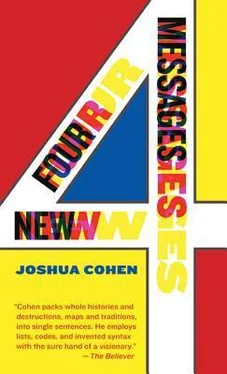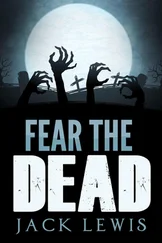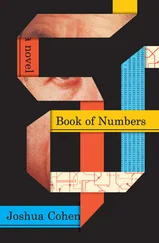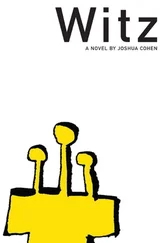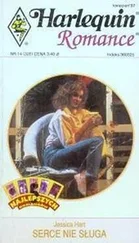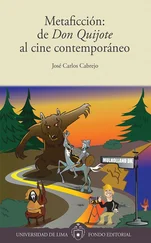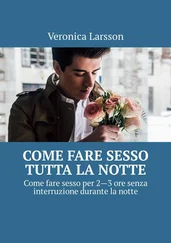Mono said, Naomi.
She was Mono’s cousin on his mother’s side.
They hadn’t spoken in years — Mono had last seen Naomi at his mother’s grave — yet it was she who saved him.
Both sets of parents had emigrated together, had already settled into Jersey and Ph.D. programs by the time they were Mono and Naomi’s age, both had graduated together (1982), had bought their houses and had their children at the same time (Mono and Naomi were born the same month, 1984), bought their BBQs, bought their inground pools, opened their email accounts — Mono related the success of this parental relocation, especially successful when compared with ours.
Though Naomi, unlike Mono, was said to have matured.
She was to marry a man so incidental to even his own self let alone to this tale that his name shouldn’t be recorded — let’s have tact, let’s try for it.
About two months before Mono’s exploits went viral Naomi’s mother called to announce the nuptials and guilt him into being there — New York — the tacky boathouse in Central Park.
She jotted his address for a formal invitation, said, We’ll catch up at the ceremony.
Mentioning, There’s a girl I’d like to introduce you to. She’s a nurse. She looks like A. Jolie.
I’m excited, was all he could say.
She said goodbye with: I called your father for your number. Don’t worry, the Poz is not invited.
Poz being Armenian.
Mono, who did not speak Armenian, knew it meant dickhead or equivalent.
Imagine gripping the back fat of that nurselet for the slow dances or having to replay the act behind his meme fame for his smuttier uncles in the bathrooms between the entrée and dessert — Mono didn’t want to go, but he had to go: he’d already RSVP’d.
Still he procrastinated, waited until the Friday before the event to ball his only suit into his backpack — the suit black crisp funereal, bought for his college interview — and drive out to find the drycleaner’s.
He remembered a cleaner’s adjacent to a tanning salon or ye olde historic sandwich shoppe.
Or else adjacent to both.
He didn’t google, wished to locate by memory alone.
An hour later returning, having stopped at a diner to park a reuben in his gut.
His suit would be ready only on Sunday, they opened at noon. He’d have to crawl into the suit in the car on the way to the bus or the train.
Out on the patio it’d become a clear summer night — not cloying anymore but breezy perfection — I couldn’t believe I had just a week of this left.
The smoke of our cigarettes the only clouds of the moon — closing time.
We were the only customers.
I wanted to offer Mono to pick up his suit, send it to him — airmail? or boat rate?
On me.
We haven’t been in touch.
Mono said:
Squadcars surrounded his building. He knew they were idling for him. For dealing, for whatever Marjorie Feyner had done — he didn’t know Em was in a coma until resettled abroad, his second night insomniac in Paris when he’d checked that life online at a café.
Circling back, circling the lot.
His backpack was slung over the back of the passenger seat and inside the pack was his passport, which clinched it (the last codex, his last account, those durable blue covers).
They could have his computer, have bed and bare walls. His password, his password for everything, was sdrawkcab (remember it “backwards”).
He drove his mother’s car to Newark International, abandoned it in Parking. He wasn’t in any databases yet. A ticket would be sold.
I’d been writing a story,yet another shitblast of the hundreds I’ve begun only to crumple for ply (I’d never been blocked before, some blockage should’ve been good for me but), came to that part in the story and just — I just had to stop, it was ridiculous!
I came to the point I knew would come, the point that kept coming, the point where I’d have to say what I didn’t want to say, to say what I couldn’t — what had no place in, forget my story, I told my father, What I’m talking about has no place in my life!
What are you talking about? Dad asked and smiled retirement’s bridgework at being confronted by something as stunningly tedious as himself, probably — but himself fictionalized, as a fictional character — because I’m broke and so was wearing his clothing, also I have the beard he has because we both have weak chins. I’d come back to Jersey for the weekend to sleep without siren in my old ugly unrecognizable bedroom and fill up on homecooking.
I said, I can’t say the Word.
We were in the bedroom.
He sat on a chair across from me on the bed and sipped from a wineglass and stared.
I said, You’re trying to get me to say it.
The walls were white scuffed with recent paint slashes: color swatches my parents were considering for the bedroom’s repainting, assorted pastels and other near neutrals very much not me. The bed and chair were not mine but new. My hutch desk was gone along with the shelving, the room was being converted into a guestroom but — as Mom had strained to say over the phone that early Friday — I would always be welcome.
How can you tell me what happened without telling me what Word? Dad asked suddenly standing older and grayer and rounded goutish and taking his glass from the sill and tipsy but maybe his feet were asleep walked out of the room.
After dinner Mom disappeared sinkward to rinse and call back a friend who’d called interrupting stroganoff, while Dad and I stayed seated as if extra table legs and he said, Let’s try this again, so I told him the story:
I said, There’s this girl, we’ll start with her, I guess I have to describe her. She’s pretty? Dad asked, I said, I describe her as tawny (I wasn’t quite sure what that meant), with red hair dyed and two huge mouthsized eyes. She’s sexy? Dad asked and shot a look at Mom who was busy making a dietetic dessert sandwich of ear and phone and shoulder. I said, She’s like the girl next door to the girl next door, meaning she’s somewhat trashy but also covered entirely with blood, in the first scene she’s just bloody head to toe. Of course she is, Dad said (distracting himself with the bottle, he poured the last petit noir), but you can call the different sections of a book, scenes? I thought that term was just for the movies? I said, You can say scene about a book but if you say chapter about a film people will think you’re an asshole. Of course they would, Dad said then took a sip winking and by the time he’d replaced empty glass to tabletop the sink had stopped, the kitchen was empty and Mom was already upstairs, her laughter floating distantly and then disappeared, aerated into a higher hilarity — into the refrigerator’s hum, the run of the dishwasher, the clock’s compulsive perk.
She’s in the backseat bouncing, I said, that’s the opening: her body bloodied with a knife sticking out of it in the backseat being bounced between her seatback and the backs of the seatbacks in front of her— Wait, Dad asked, what the hell? I said, If he’s not careful on the next large preggers bump her corpse could tumble to the floor, falling atop the filthy mats, atop the sloppy wads of mats, to wedge between her seat and his recline.
His? Dad asked, I said, If he doesn’t slow down.
It’s night? Dad asked, I said, Yes or virtually, the sun’s gone down, moon’s gone halved, how’d you know? her body’s rolling and thumping.
What’s the night like? Dad asked, I said, It’s wet, the stoplights flash above like spotlights.
It’s green, a bright go green, the car’s being driven fast.
Slow down, Dad asked, who’s driving?
Читать дальше
